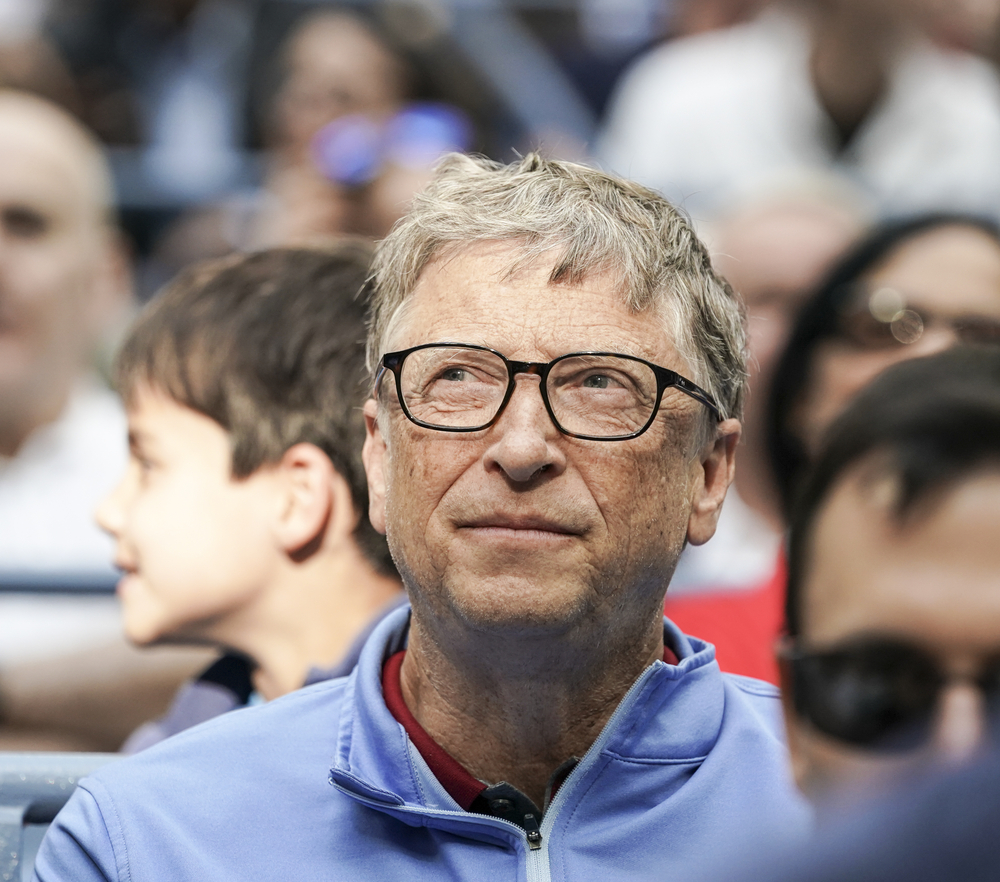Bill Gates leaves Microsoft's board of directors
Looking back at the Harvard dropout who changed the world of business


Bill Gates, the founder of Microsoft, has stepped down from the company's board to focus more of his efforts on philanthropy.
The 64-year-old stopped working for the tech giant in 2008 and stepped down as chairman six-years-later.
He retained a place on the board and took on a new role as a technology advisor, but is now only active in the latter of those roles.
In 2000, along with his wife Melinda, he launched the Bill and Melinda Gates Foundation - a charity dedicated to fighting poverty - and it is this kind of venture Gates has decided to focus on. The foundation has offered help for causes such as climate change, polio vaccinations and poor sanitation.
More topically, in a 2015 TED talk, Gates suggested that viruses, not world wars, would be the next big threat to humanity. Five years on and COVID-19 has added weight to that speech as it spreads across the world.
In a statement, the company's current CEO, Satya Nadella, said it had been a "tremendous honour and privilege" to work and learn alongside Gates, who steps away from one of the world's most influential businesses, some 45-years after co-founding it in Albuquerque, New Mexico.
In 1975, Gates and his friend Paul Allen started "Micro-Soft" with a vision of a computer on every desktop and in every home.
Get the ITPro daily newsletter
Sign up today and you will receive a free copy of our Future Focus 2025 report - the leading guidance on AI, cybersecurity and other IT challenges as per 700+ senior executives
At the time, that idea was seen as very farfetched, but within a year the pair had developed an Altair emulator that ran on a minicomputer, and then the BASIC interpreter. By 1976 the hyphen was dropped, Microsoft was born and Gates never went back to Harvard to complete his studies.
By 1980, Microsoft's programming work caught the attention of IBM, the biggest supplier of enterprise hardware at the time.
Initially, Big Blue wanted a BASIC interpreter for the IBM PC, but its representative Jack Sams mentioned to Gates that it had difficulties licensing an operating system. Gates and Allen suggest IBM use an 86-DOS, created by Tim Paterson of Seattle Computer Products (SCP). Microsoft would license its OS before later fully acquiring SCP.
This would become the foundation for Microsoft's business model and the first moves towards Windows - the world's most popular computer operating system.
Gates became the main executive and chairman of the company, leading them through the 80s and 90s before handing over the reins to Steve Ballmer in 2000. Over the next two decades, his role within the company diminished as he sort to focus more on charitable work.
While he still has a lot to offer the world, he leaves a legacy in tech that few can match, having been an integral leader of the information age.
Bobby Hellard is ITPro's Reviews Editor and has worked on CloudPro and ChannelPro since 2018. In his time at ITPro, Bobby has covered stories for all the major technology companies, such as Apple, Microsoft, Amazon and Facebook, and regularly attends industry-leading events such as AWS Re:Invent and Google Cloud Next.
Bobby mainly covers hardware reviews, but you will also recognize him as the face of many of our video reviews of laptops and smartphones.
-
 Bigger salaries, more burnout: Is the CISO role in crisis?
Bigger salaries, more burnout: Is the CISO role in crisis?In-depth CISOs are more stressed than ever before – but why is this and what can be done?
By Kate O'Flaherty Published
-
 Cheap cyber crime kits can be bought on the dark web for less than $25
Cheap cyber crime kits can be bought on the dark web for less than $25News Research from NordVPN shows phishing kits are now widely available on the dark web and via messaging apps like Telegram, and are often selling for less than $25.
By Emma Woollacott Published